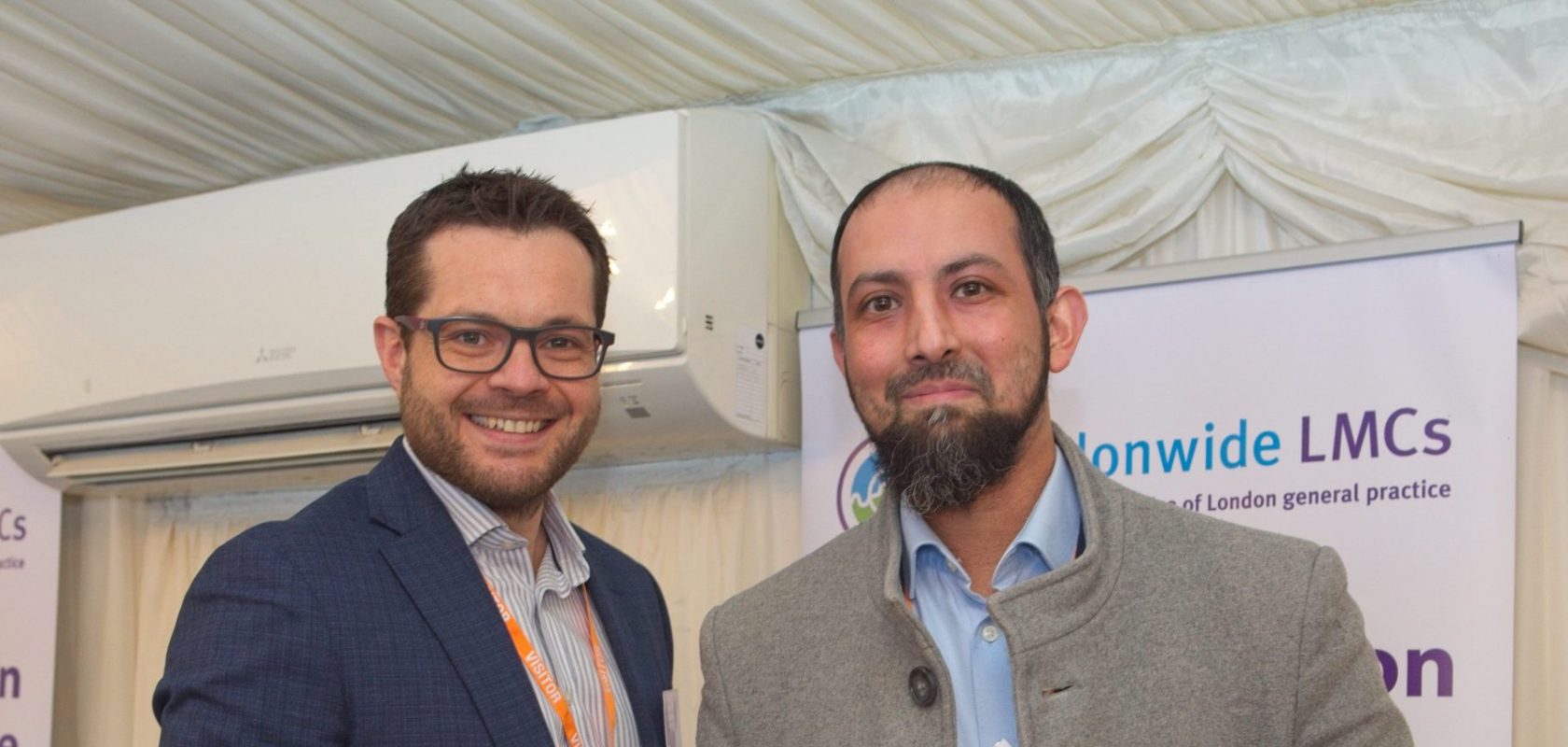Lime Tree Surgery’s innovative approach to safety and care delivery

Dr Nick Woodier, Senior Safety Investigator, Health Services Safety Investigations Body presents Dr Mizan Hoque, Medical Director at Lime Tree Surgery, with the London General Practice Safety Award in February 2025.
At the London General Practice Awards on 6 February 2025, Lime Tree Surgery was commended with the London General Practice Safety Award.
Dr Mizan Hoque, Medical Director at Lime Tree Surgery, emphasised the challenge of maintaining safety standards in general practice with current workloads. “One of the key things in healthcare is to ensure that we are delivering a safe level of care,” he said. “When demand is extremely high and stress levels rise, safety can often be compromised.”
He continued, “There’s a lot of discussion around general practice often struggling with identifying and responding to safety issues effectively, saying that we aren’t always good at detecting when things go wrong, collecting that data, or acting on it.” Lime Tree Surgery has no such problems because it runs a robust, senior GP-led appointment system, which prioritises patient issues and requests daily. This system ensures that urgent cases receive immediate attention.
He shared an example: “We had a patient walk in who was extremely distressed, experiencing a mental health crisis, seeing things and hearing voices. Because of our system, we have someone available to respond immediately—rather than the patient having to wait in a clinic with twenty others. That is the level of safety we are proud to provide.”
Transforming patient care
Lime Tree Surgery, based in Leytonstone, has overhauled its patient care model to tackle rising demand and improve both patient and staff experiences. The practice, led by a team of three senior GPs and supported by GP trainees, nurse consultants, paramedics, and social prescribers, is also a training hub for future healthcare professionals.
Mizan shared insights into the transformation, “We are based in a diverse area with both deprivation and affluence side-by-side. Our team dynamic is strong, and that has been the key to driving change.”
Faced with increasing patient demand, an overwhelmed booking system, and the 8am appointment rush, the practice conducted an internal audit to assess how appointments were being allocated. “We found that many patients were being booked inappropriately with GPs, which was causing stress for both staff and patients,” he explained.
The team responded by redesigning their system using the NHS’s modern general practice model as a foundation. The new approach channels all patient requests through an online system, where administrative staff first determine whether the issue is non-clinical—such as a sick note or repeat prescription—or requires medical attention. Clinical requests are then triaged by a dedicated GP with assistance from others as required. “If a request of a five-week-old baby with a fever comes in at 9:30am, we’ll see that request by 9:35am and the mother will get a call within minutes,” said Mizan. “However, if it’s one of our patients we’ve been seeing for the last twenty years with recurring knee pain that comes in every two weeks, it’s still considered a medical problem, but it can wait as we’ve seen them repeatedly. If it is a day that we have the capacity, the patient can be seen later in the day.”
The system also allows for efficient handling of simple clinical issues. “If a patient had blood work done and the results shows low iron or low calcium, I can send a quick text with advice and supplement recommendations because that is something that can be dealt with in about two minutes and doesn’t require a 10-to-15-minute appointment” he added.
The results have been significant. Urgent cases are seen the same day, and most non-urgent patients are offered appointments within a week. “We’ve created a fairer, more responsive system that prioritises clinical need while reducing stress within the practice.”
Improvements in access, patient satisfaction, and staff wellbeing
In October 2023, Mizan conducted a detailed analysis of the practice’s performance. “We found that around 80% of all patient requests were managed on the same day, and 100% of clinically urgent cases were addressed immediately,” he reported. “Avoidable GP appointments—those that didn’t require a doctor—dropped to under 5%.”
The impact extended to the practice’s phone system as well. “We saw a 50% reduction in incoming calls, which made our reception team really happy. Telephone waiting times dropped by 40%, with only 2% of callers now waiting more than 10 minutes. Unanswered call rates also fell from 14% to just 6%—and that was within just two months of implementing the changes.”
A patient satisfaction survey conducted shortly after the system overhaul received five hundred responses, with 90% of patients reporting they were satisfied or very satisfied with the care and response times. “Before the new system, we had seven written complaints in one quarter about access. A year and a half later, we have had just one,” he noted. “Reception staff also reported a 97% drop in patients being harsh or frustrated due to appointment issues.”
Community initiatives
Looking ahead, Mizan is coordinating several community-focused initiatives. As a senior lecturer at the Queen Mary University of London, he is planning a youth engagement event to introduce local teenagers to careers in healthcare. “Many young people in our area do not know what opportunities are out there. We want to change that,” he said.
The practice is also exploring a women’s health talk focused on menopause, led by a colleague with a special interest in gynaecology. Additionally, Lime Tree Surgery is also partnering with a dementia society to host awareness activities.
Another upcoming project aims to improve communication with patients about how the practice operates. “We want to set clearer expectations. We are considering a small booklet or leaflet that explains how we prioritise care and what typical wait times look like. I think setting patient expectations is something that we do want to focus on,” Mizan concluded.

